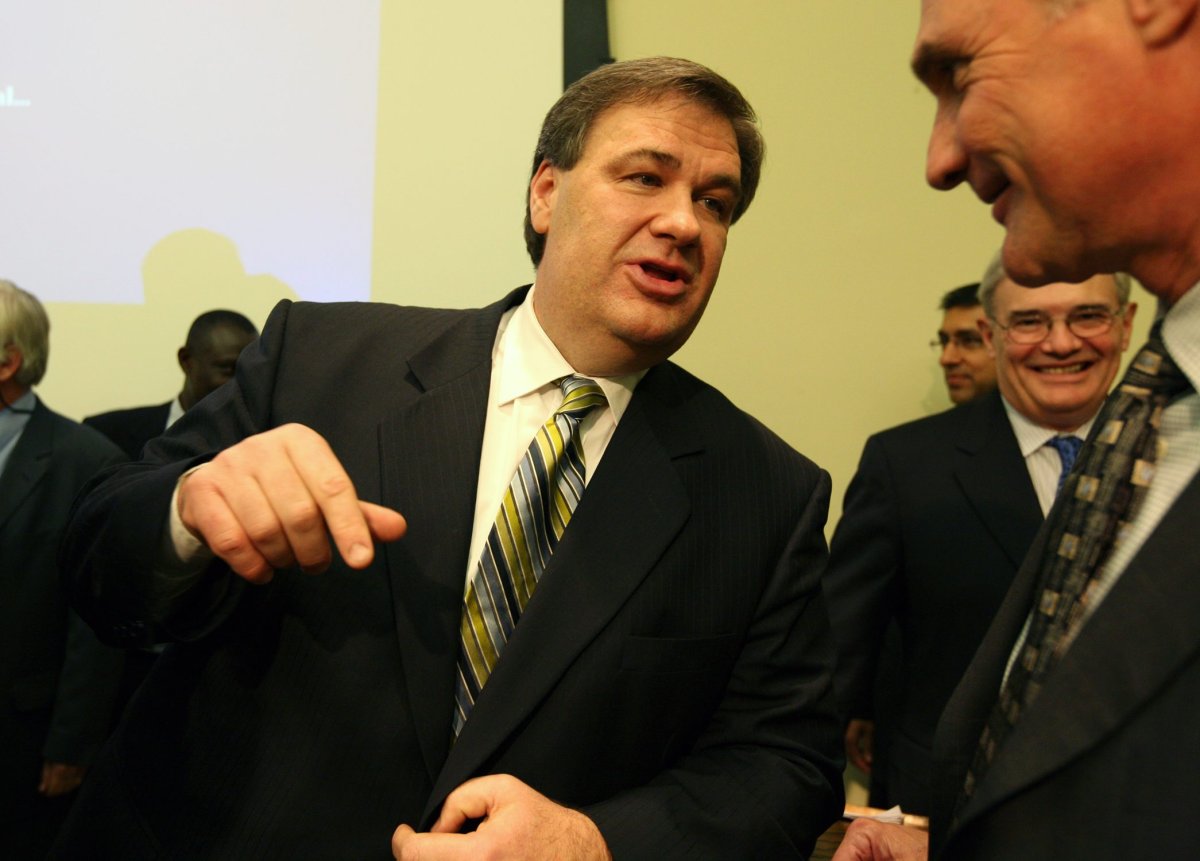CALGARY – So you’re a wealthy Canadian whose tax bill is going up. Does it pay to leave the country?

When media outlets reported last month that billionaire Murray Edwards is leaving Calgary for the United Kingdom, some saw it as proof that tax hikes for top earners are driving away the rich.
“High income earners like Murray Edwards fleeing the province is more evidence the NDP government’s economic agenda is hurting Alberta’s long-term competitive advantage,” Alberta’s Opposition Wildrose Party said in a March 29 release.
Despite the political haymaking, the prominent oilpatch financier, known also for his interests in the Calgary Flames and ski resorts, hasn’t publicly said why he’s hopping across the pond. Recent regulatory filings for the publicly-traded companies in which he’s involved show him as living in London.
READ MORE: Canadians believe richest 1% are skipping out on paying taxes: poll
Edwards reportedly earned nearly $15M in 2014 in his roles as chairman of Calgary-based Canadian Natural Resources Ltd. (CNRL) and chairman of Ensign Energy Services Inc., according to the Calgary Herald’s executive compensation survey last spring.
Between federal and provincial tax changes, the combined marginal tax rate for Albertans in the top bracket is rising to 48 per cent in 2016, from 40.25 per cent last year.
There’s a psychological element to whether a high net worth individual would feel compelled to leave the country for tax reasons, said lawyer Jonathan Garbutt.
READ MORE: Feds to crack down on tax dodgers, looking to recoup $2.6 billion
It’s usually when the rate tips past 50 per cent — which is the case in many provinces, but not Alberta — that people with a high net worth get bent out of shape, Garbutt said.
“It just gets right up peoples’ noses,” he said.
“You’re not working for the benefit of you and your family. You’re working for everybody else who maybe isn’t working as hard or as smart as you are.”
The U.K. isn’t exactly known for being a low-tax jurisdiction, but its rules for non-domiciled residents, or “non-doms,” have been a draw for the wealthy. Non-doms — who live in the U.K., but whose permanent residence is elsewhere — only pay U.K. tax on money they earn in the country, or bring into it.
In many cases, Garbutt said the tax savings could be substantial enough to outweigh the higher cost of living and a 20 per cent value-added tax on most goods and services.
But whether it’s the U.K. or a low-tax tropical locale, it doesn’t make sense to leave Canada solely for tax reasons, said Garbutt.
READ MORE: Following leaked Panama Papers, Ottawa to study ‘tax gap’
“You can’t let the tax tail wag the life dog,” he said, “because you won’t be happy and these people have enough money that they should be happy.”
There can be big upfront costs and sticky logistical practicalities that negate any tax-saving rationale for leaving, said Jack Courtney, vice-president of private client planning at Investors Group in Winnipeg.
“Very often there’s a very big tax hit for severing residential ties with Canada,” he said.
Specifically, those leaving could get dinged significantly on any capital gains from “deemed dispositions” of assets that became more valuable between the time they bought it and their departure.
They also have to be prepared to part with virtually all the cards in their wallet and embrace a new lifestyle.
READ MORE: Want to avoid an audit? Why major changes in your tax return attract CRA attention
“You’ve got to think really deeply about where your relationships are and what your life will be like in that place,” said Courtney.
Heath-care costs — particularly for those older than 65 — are also a huge financial consideration, said John Nicola, CEO of Nicola Wealth Management in Vancouver.
Nicola said he’s dubious there’s going to be a mass exodus of the rich.
“There tends to be, in my opinion, a lot more hype and press about people jumping ship offshore than there is the way of a lot of data suggesting it’s a significant outcome.”







Comments